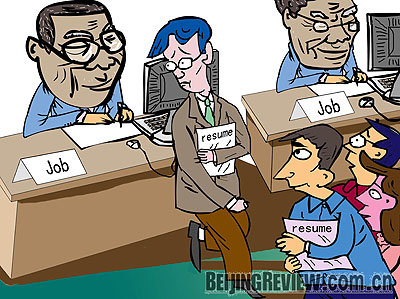|

For people who have spent years on exhausting work schedules, life after retirement--which usually includes stable pension income and more leisure activities--is golden. However, a proposed policy change may delay retirement for most active Chinese workers by five years.
The government is weighing a plan to gradually raise the mandatory retirement age, said He Ping, Director of the Social Security Research Institute under the Ministry of Human Resources and Social Security.
According to He, the plan suggests that, starting in 2010 for women and 2015 for men, every three years the retirement age should be increased by a year until it reaches 65.
Under the Labor Law, men retire at 60 and women at 55. The proposal to raise the retirement age had been made given the fact that China's current pension fund is far from enough to support the retired population as it expands in the next few years, He said at a high-profile forum on China's labor situation in Beijing in early November, without giving more details.
The news has triggered a heated debate.
Some believe it could create a shockwave across China's saturated labor market. If the retirement age were extended, government agencies and state-owned enterprises would be run by older and less energetic workers. Another big concern is a greatly expanded group of unemployed people who are too old to find work but too young to claim pension payments.
Other observers defend the initiative, arguing that China is aging rapidly, and the retirement age extension is a necessary preparation for future labor shortages.
According to sources at labor authorities, no policies on "extending the mandatory retirement age" have come into being yet.
Preparation for the worst
Tong Dahuan (Modern Express): Most industrialized countries began to age after they became affluent, when their per-capita gross domestic product was between $5,000 and $10,000. By contrast, China's aging process started when its economy was still underdeveloped, with per-capita gross domestic product topping just $1,000. The average lifespan for the Chinese stands at 73 years old, posing a big challenge to the country's pension system.
In industrialized countries, there are three major approaches to deal with problems arising from an aging society, all focusing on increasing the size of the labor force. First is to extend the mandatory retirement age; the second is to absorb young immigrants; and the third is to encourage childbirth.
The second approach is impossible for China as we already have a huge young population, and the third goes against the country's family-planning policy. Thus, the only feasible option is to extend the mandatory retirement age. This move will effectively reduce the population living on a pension.
| 